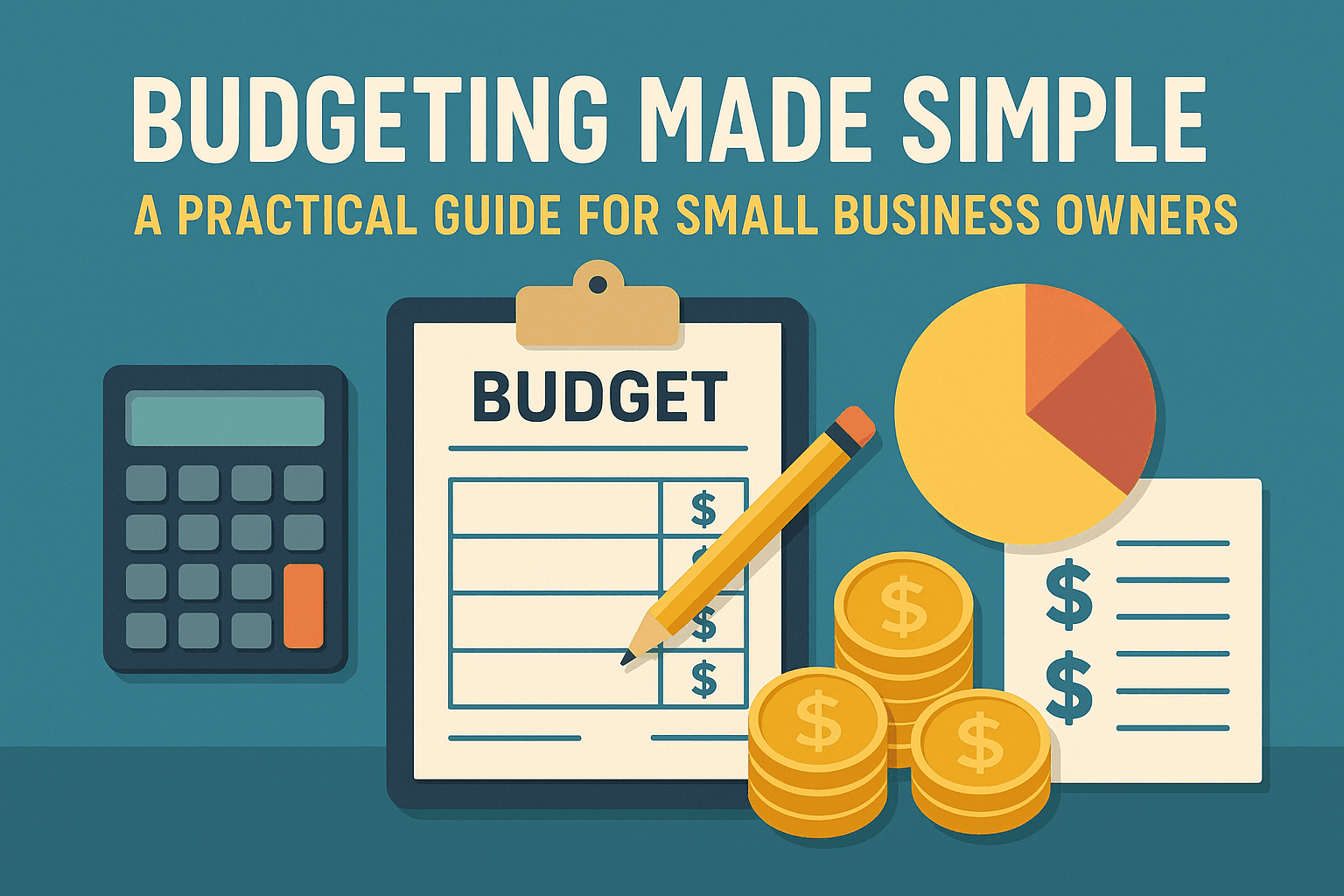For many small business owners, budgeting can feel like a daunting task. Yet, having a clear financial plan is essential for stability, growth, and avoiding unnecessary stress. A well-structured budget helps you understand where your money is going, anticipate future costs, and ensure your business remains on track to meet its goals. The good news is, budgeting doesn’t have to be complicated — with the right approach, it can be straightforward and highly effective.
1. Start with Accurate Figures
A budget is only as good as the information it’s based on. Begin by reviewing your historical financial data, including sales, expenses, and seasonal fluctuations. This gives you a realistic foundation for predicting future performance.
2. Separate Fixed and Variable Costs
Identify your fixed costs — such as rent, insurance, and salaries — which remain consistent each month. Then list your variable costs, like utilities, raw materials, and marketing spend, which may fluctuate. Understanding these categories helps you plan for both predictable and unexpected expenses.
3. Set Realistic Revenue Goals
Be ambitious but realistic when forecasting income. Consider factors such as industry trends, market conditions, and your business’s growth potential. Overestimating revenue can lead to overspending, while underestimating may restrict necessary investments.
4. Allocate Funds for Savings and Emergencies
Just as individuals benefit from an emergency fund, businesses should set aside reserves to handle unexpected challenges. Aim to save a percentage of your revenue each month to build a financial cushion that can help during slow periods or unforeseen events.
5. Monitor and Adjust Regularly
A budget is not a one-time exercise. Review it monthly or quarterly to compare projected figures with actual results. This allows you to spot discrepancies early and adjust spending or revenue targets accordingly.
6. Use Technology to Simplify the Process
Modern accounting software can make budgeting far less time-consuming. Tools that track expenses, generate forecasts, and produce real-time reports help you stay in control without relying on guesswork.
7. Link Your Budget to Your Business Goals
A good budget isn’t just about controlling costs — it’s about supporting your growth strategy. Whether you aim to hire staff, expand operations, or launch a new product, ensure your budget allocates the necessary resources to achieve these objectives.
A Roadmap for Financial Success
A clear, realistic budget acts as a financial roadmap, guiding your decisions and helping you manage resources effectively. By keeping it simple, reviewing it regularly, and linking it to your goals, you can use budgeting as a powerful tool to drive stability and growth. For small business owners, mastering the budgeting process is an investment in long-term success.




